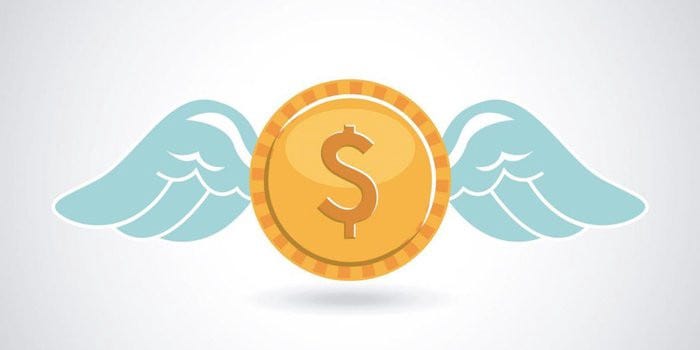Angel investing or playing roulette
Angel investing is a relatively new phenomenon outside the US. As the digital economy successful exits reach Europe and Asia, new wealthy entrepreneurs are inclined to invest part of the gains back into the ecosystem. Besides, many countries provide a financial incentive for doing it.

Looking at angel investing from a US perspective might trigger interesting learnings.
For one thing, angel investment in the US has collapsed. In 2015 angels led 714 rounds, in 2018 only 156 rounds. In the same period, the median angel round has fallen from $500k to $270k. Angel investing is now less than 5% of the first-round money.
Why is that?
There is little public data about angel performance; however, data collected by the Kauffman Foundations tells us that the best estimate for angel investor returns is 2.5 times the capital invested. That’s pretty good. So why such a collapse?
I see four main reasons.
Bigger rounds
The first apparent reason is that the early-stage rounds have gotten bigger. As an angel, your enemy is never the valuation but rather the dilution. You need to aim at a meaningful stake in the startup as subsequent rounds will bring an extreme dilution. With bigger rounds, what angels can invest becomes less significant than before, less equity percentage, to a point where investing 25K in a $1M+ round make little sense.

CBInsights 02/12/2019
More competition
As nature does not like emptiness, the void left by angels has been taken by micro-funds. Micro-funds are generally less than $40M and exclusively invest in very early-stage startups. Micro-funds have blossomed in the US, and there are more than a hundred. It is always less work for an entrepreneur to take investment from one fund rather than multiple angels, as funds can cut bigger checks.
It’s a numbers game
However, one of the most substantial reasons I see is that investing early stage is a numbers game. If you believe that a few sound investments can outperform an extensive portfolio, you are probably wrong. Unless you have privileged access to a fantastic deal-flow, chances are your deals are going to be risky bets, you are playing roulette.

Yes, of course, you can analyze the market, competition, and you can do your best to evaluate the founding team. Funds do it as well, often better than angels, as they are more structured and connected. However, that’s not enough, otherwise investing would be an algorithm where rational analysis wins.
Please don’t get me wrong you need a large market and an A team, but there are two crucial reasons why a startup succeeds, and it’s not something easy to spot. The first reason is timing, and knowing if the startup is too early or too late is complex. You need to understand market dynamics, competition — often in stealth mode- and technology cycles, not simple! The second reason is luck. Luck plays a significant role. It’s impossible to predict it, although you can evaluate the ecosystem the startup plays in ( better chances being in San Francisco than many other places) and you can see if the founders have been lucky, but once again, not easy to decipher.
Investing early is a risky business, and unless you have a portfolio big enough, you are at risk of losing everything. The statistics tell us that you need to at least invest in 30 to 40 startups to mitigate the risk. That’s a lot for one angel.
Minimum impact
Finally, when you start investing your own money, you always believe that you can help if need be, and influence the fate of the startup. My experience, after having invested in 55 startups (disclosure, I did it via our fund, not as an angel) is that there are two kinds of founders. The good one and the not so good one. The good don’t need you, and if they do, it’s always non-critical, and they know when to use you. The not so good one could take your wisdom; however, they never listen. So I know it’s not so flattering for the ego, but the impact an angel can have is minimum.
That’s a key reason why entrepreneurs become angels, they want to keep living the entrepreneur journey without the burden of actually really doing it. After realizing that they are quite remote from it, they stop investing.
So angels are critical to a healthy ecosystem. Far from me to discourage potential angels, however, it is a full-time job and a risky one. Deal-flow is key and unless being given privileged access to outstanding projects, it will be a hazardous investment. The most successful angels I’ve seen are entirely part of the ecosystem; they know the excellent founders; they see deals ahead of most people and often piggyback alongside professional investors. In addition, to play the numbers game, many angels have syndicated or are now investors in micro-funds.



